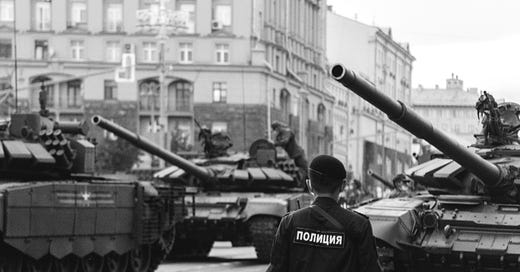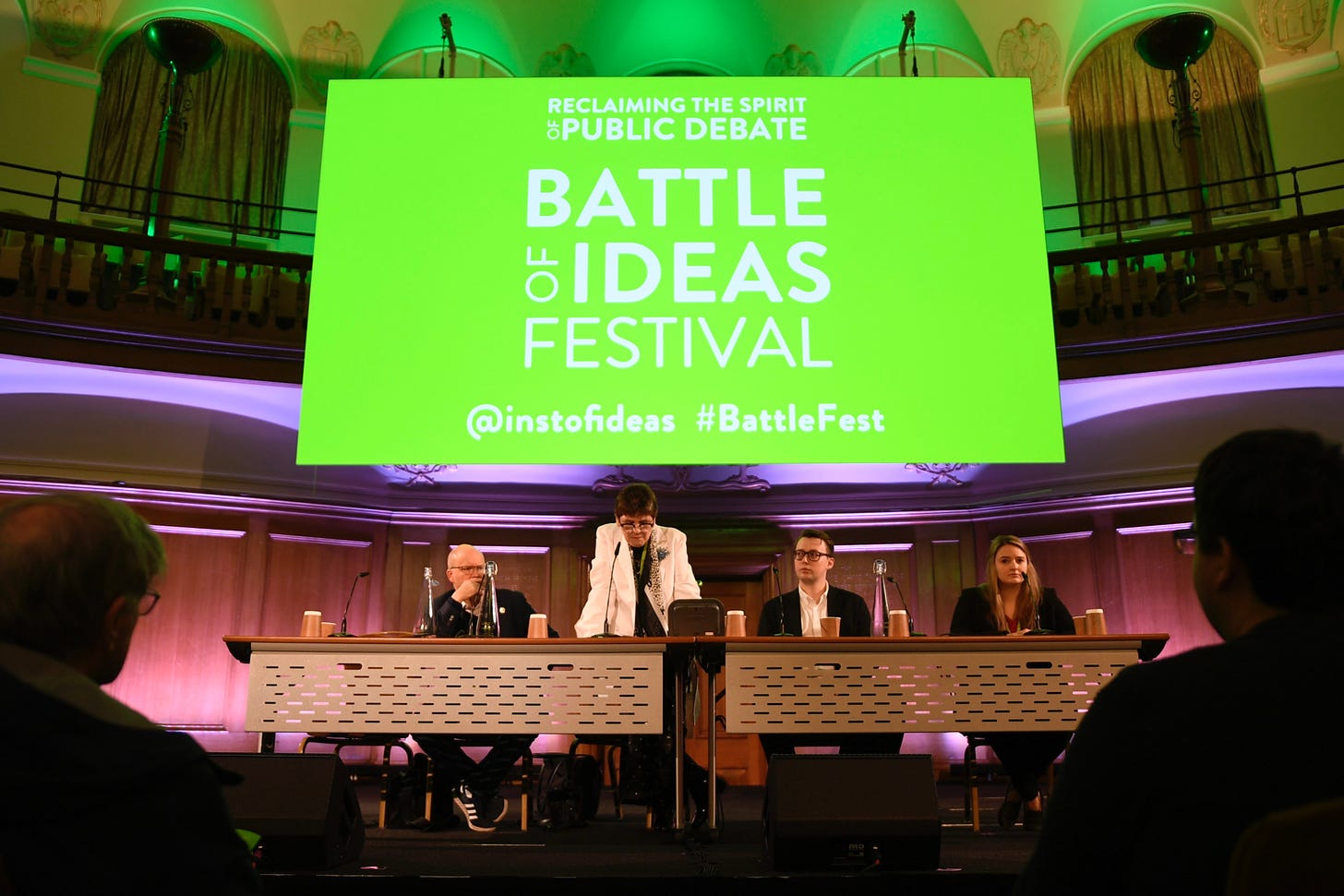Is Geopolitics Spinning Out of Control?
Why making sense of international events is so important
A post from the Academy of Ideas’ Jacob Reynolds (@jacobreynolds)
By now, you hardly need to repeat the truism that Russia’s invasion of Ukraine has upended countless assumptions about how the world works. It is not, it seems, the end of history any longer. According to the narrative of globalisation, big conflicts in Europe were supposed to be a thing of the past.
Indeed, one of the most notable features of the war in Ukraine is how it highlights the importance of the nation-state - another idea that was supposed to have been consigned to history. Whatever your view of the causes of the conflict, the way in which the national idea of a free, independent Ukraine motivates those fighting Russia is quite something to behold. It almost seems at times that the Ukrainian people are single-handedly overturning decades of comfortable globalist assumptions about how the world works. (All of this, by the way, is brilliantly explained in Frank Furedi’s new book, which I urge you to go and read.)
At the same time, Russia’s recent mobilisation and the renewed threats of nuclear attack force us to reckon with the fact that the old rules of international politics no longer seem to apply. Change is afoot. While, like the resurgence of the idea of national self-determination, this can be exciting and inspiring, it can also be a cause for concern. Indeed, the war has sent shockwaves through almost every country across Russia’s enormous borders: renewed fighting between Armenia and Azerbaijan, clashes between Kyrgyzstan and Tajikistan, enormous queues on the Russia-Georgia border as men flee conscription. Not to mention the destabilising effects within Russia itself, as the consequences of military mobilisation play themselves out in a country where Putin has stayed in power on the basis of an implicit promise to provide peace and prosperity - provided citizens steer clear of politics.
But this sense of relentless change is hardly restricted to Ukraine, Russia and the countries of the former Soviet Union. Italy has just returned a radical, right-wing government in the shape of Giorgia Meloni’s Brothers of Italy party. Predictably, everyone has already made up their mind about whether this is a slap in the face for global technocracy or the return of literal fascism. Putting aside such superficial statements, we should recognise that the election marks a serious challenge for the EU and, whether as inspiration or warning, will shape the debate in many countries across Europe.
Germany, that lynchpin of European stability, is also increasingly seeming like a source of uncertainty. The ramifications of the energy crisis are making many people question the supposed golden years of Angel Merkel’s premiership- especially Germany’s decision to move away from nuclear power. Not without contest, Germany is also re-assessing its role in the world, with the war prompting a shake-up of its armed forces. All this should indicate that little can be taken for granted in European politics.
Closer to home, the recent news that Catholics now outnumber Protestants in Northern Ireland has led to renewed hopes for a border poll. In upending centuries of history, no-one really knows how wide-ranging the consequences of a vote for unification would be. And, of course, a second referendum on Scottish Independence always lurks in the background of British politics, a vote which would be just as destabilising for the union - and possibly beyond.
And we haven’t yet even mentioned the domestic turmoil in the US, or the contradictions between China’s unstoppable rise and its significant domestic issues - both of which would in previous times have been enough for years of conversation and comment. To dig into some of the contradictions of China’s rise, we really recommend this interview with author Austin Williams on Spectator TV. He is an expert on Chinese architecture and urbanism and this podcast goes into the fascinating tension between tradition and modernity.
The point here is that international politics has rarely been so unpredictable or such a source of instability and change. Sitting out this period of change is hardly an option: we all need to come together to learn, challenge each other, and hopefully shape whatever new era we might be entering. These themes will be a major part of the Battle of Ideas festival, which kicks off in just under three weeks on the 15 & 16 October. Over the weekend, we’ll be looking at:
If Globalism is in crisis and whether ‘Davos Man’ has had his day?
How Russia’s actions today have been shaped by the way the Cold War ended?
What is the point of the commonwealth, especially after the death of Elizabeth II?
How should the UK react to potential referendums in Northern Ireland or Scotland?
And, of course, we’ll be tackling the Ukraine issue head on.
I really hope you’ll join us for the weekend - so go and get your tickets.
Win a fantastic hotel break at Blue Orchid Hotels and tickets to the Battle of Ideas festival
In partnership with Blue Orchid Hotels, London’s trusted hotel collection, we are delighted to announce a competition to win a Champagne overnight stay for two on Sunday 16th October, with full English breakfast, at The Wellington by Blue Orchid Hotels and a pair of full weekend tickets to the Battle of Ideas festival, the UK’s premier festival of debate and discussion.
To enter and for full information, please click here.






